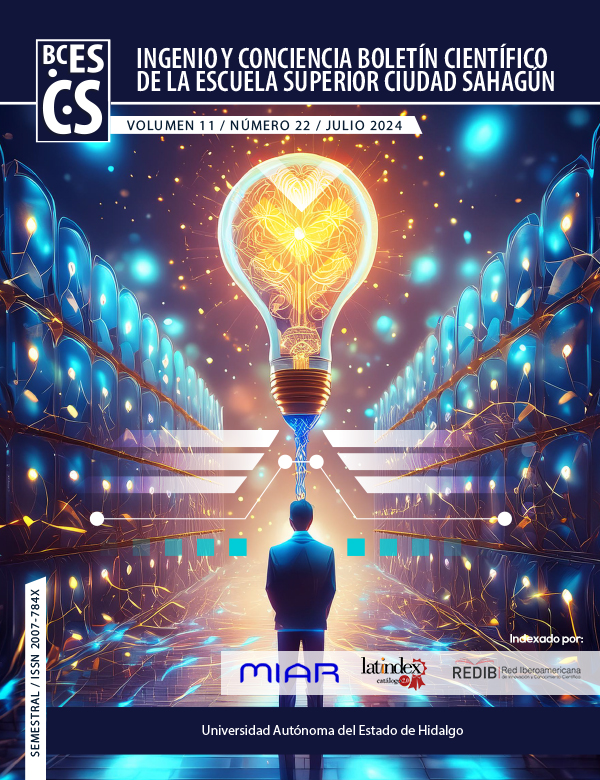Virtual environment for teaching fractions in elementary education
Abstract
The mathematics teaching process in basic education faces different difficulties that prevent the acquisition of basic and fundamental knowledge for the future academic life of students. According to the National Plan for the Evaluation of Learning (PLANEA) only 8% of sixth grade students can solve problems with decimals and fractional numbers. The use of technological resources in the classroom represents an opportunity to strengthen the work of both teachers and students. This paper presents the development of a Learning Object (LO) that strengthens the teaching and learning of mathematics, particularly in fractions and their basic operations. For its construction, the Analysis, Design, Development, Implementation, and Evaluation (ADDIE) methodology was used, and the Game-Based Learning (GBL) paradigm is incorporated as a didactic strategy. The contents of the OA created cover the contents of the syllabus and students work in an interactive environment inside and outside the classroom.
Downloads
References
Aguado, I. (2021). eXelearning como herramienta para la virtualización de la enseñanza: el diseño de objetos de aprendizaje para el estudio del paisaje urbano. Ikastorratza. e-Revista de didáctica.
eXL. (2023). eXeLearning, editor de recursos educativos interactivos. https://exelearning.net
Flores, F., Vásquez, C. y González, F. (2021). El uso de las TIC en la enseñanza de conceptos geométricos en la educación básica. RIDE. Revista Iberoamericana para la Investigación y el Desarrollo Educativo, 12(23).
GameLearn. (2022). The theory of game-based learning.
García, R. (2020). La importancia de la aplicación del modelo instruccional ADDIE en la archivística. Tlatemoani: revista académica de investigación, 11(33):95–108.
INEE. (2019). La educación obligatoria en México - Informe 2019.
Moo. (2023). Moodle LMS. https://moodle.org
Morales, R. y Diez, E. (2020). Revisión de metodologías para diseñar objetos de aprendizaje OA: un apoyo para docentes. Revista Iberoamericana de Tecnología en Educación y Educación en Tecnología, (26).
Pere, C., Meritxell, E., y David, B. (2020). Gamificación y aprendizaje basado en juegos. Enseñanza de las Ciencias de la Tierra.
Pérez, D., Hijón, R., Bacelo, A. y Pizarro, C. (2020). Can computational thinking be improved by using a methodology based on metaphors and scratch to teach computer programming to children?. Computers in Human Behavior.
Scr. (2023). Scratch comunidad de Código Abierto. https://scratch.mit.edu
Templos, L. (2020). Modelo instruccional ADDIE. Logos Boletín Científico de la Escuela Preparatoria No.2, 7(14):24–26.
Torres, A., López, A. y Sein-Echaluce, M. (2021). Protocolo para la evaluación de materiales multimedia. En Innovaciones docentes en tiempos de pandemia. Actas del VI Congreso Internacional sobre Aprendizaje, Innovación y Cooperación, CINAIC 2021, pp. 381–386.
Copyright (c) 2024 Mireya Clavel Maqueda, Dulce D. Martínez Hernández , Eduardo Cornejo Velázquez, Ojuky d. R. Islas Maldonado

This work is licensed under a Creative Commons Attribution-NonCommercial-NoDerivatives 4.0 International License.










